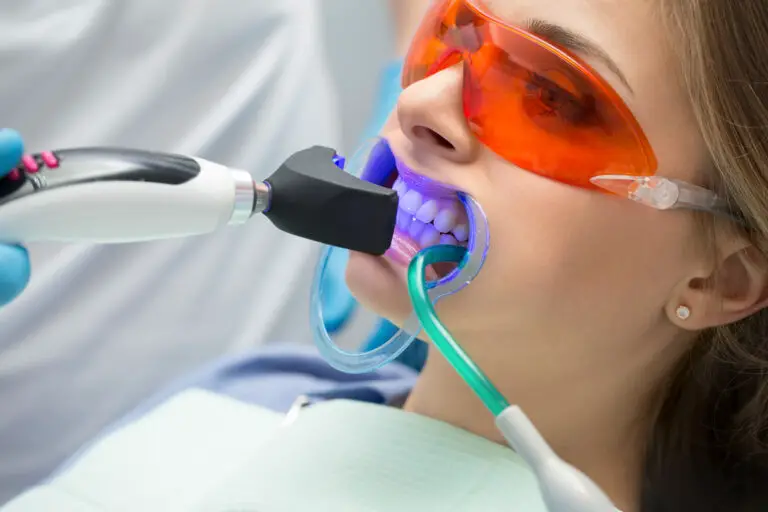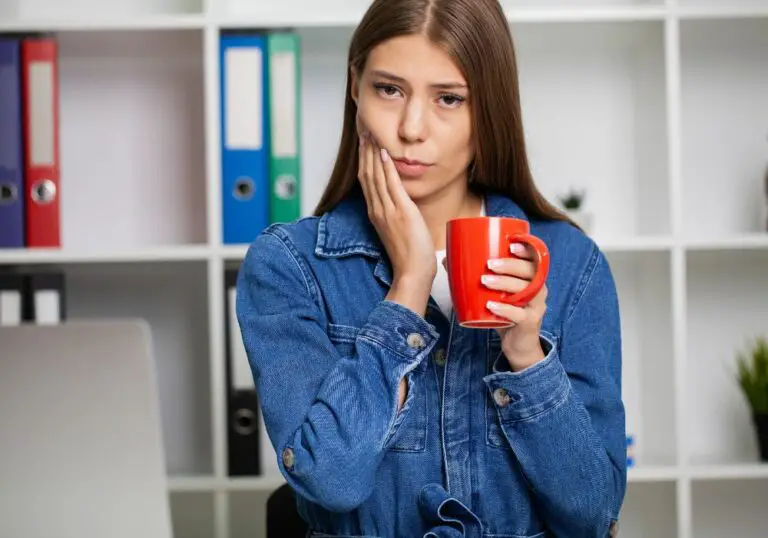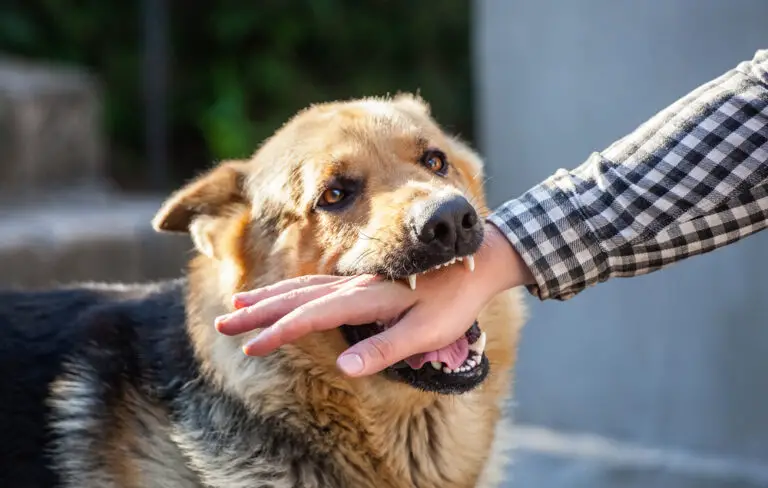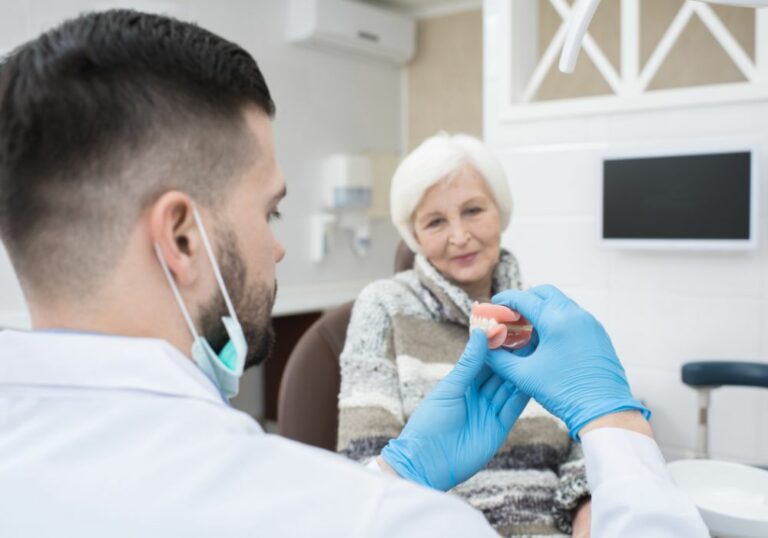As dogs reach their senior years, many changes occur in their bodies. One common sign owners notice is teeth chattering or teeth clicking. This involuntary motion of the jaw and teeth often indicates an underlying medical issue.
Common Causes of Teeth Chattering in Elderly Dogs
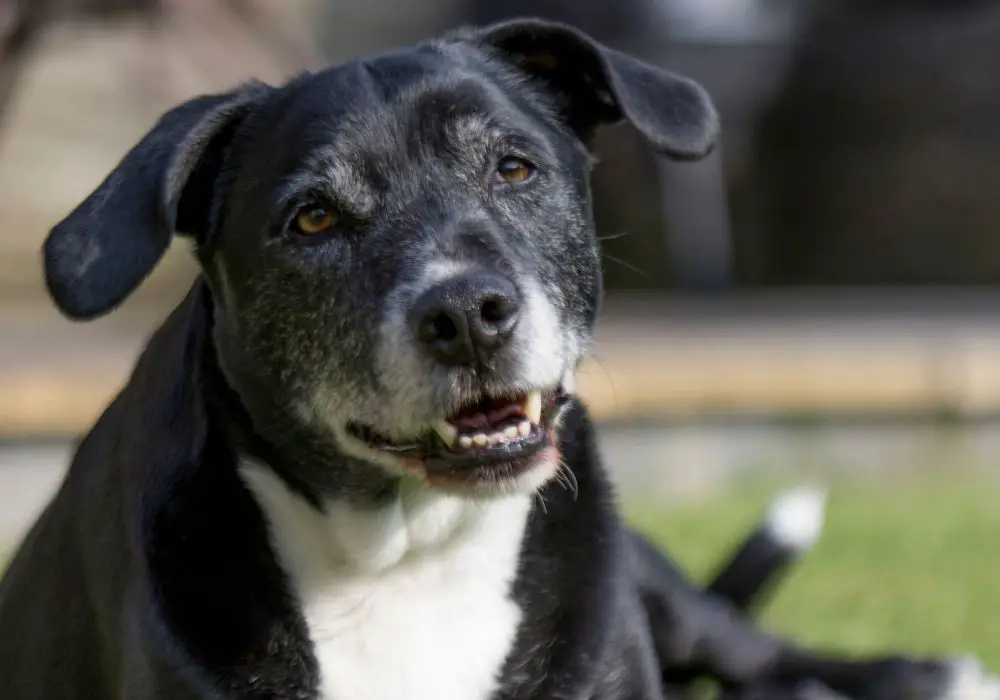
There are several potential reasons an old dog’s teeth may start to chatter:
Periodontal Disease
Periodontal disease is extremely prevalent in older dogs, affecting over 80% over age 3. As plaque and tartar buildup on the teeth, it leads to inflamed gums, receding gums, gum recession, periodontitis, tooth decay and loss of bone support.
This progressive dental disease causes significant oral pain and discomfort in dogs. The mouth pain can cause them to chatter their teeth or move their sore jaws uncontrollably.
As periodontal disease worsens, other symptoms may include bad breath, loose or infected teeth, bleeding gums, and difficulty eating. Dogs may show signs of oral discomfort like lip smacking, drooling, or pawing at their mouth. Teeth chattering tends to worsen as the dental disease advances.
Tooth Root Abscesses
An abscess at the root of a tooth is a very painful condition. It occurs when bacteria invade the pulp of the tooth, most often due to severe periodontal disease. Pus builds up at the root, causing inflammation and destruction of the tooth socket and jaw bone.
Dogs with a tooth root abscess usually show obvious pain when eating or chewing. The mouth discomfort may cause teeth chattering as the dog uncontrollably moves its sore, infected jaw. Veterinary dental treatment is urgently needed.
Oral Tumors or Cancer
Oral tumors and cancers often develop in older dogs due to chronic inflammation. Melanomas, squamous cell carcinomas, and other oral tumors can arise on the gums, lips, tongue, roof of the mouth, and within the teeth.
As the tumors grow, they cause significant pain and interfere with eating. Teeth chattering may signal the discomfort caused by oral cancer. Dogs may also have trouble chewing or swallowing food. Any growths in an elderly dog’s mouth should be checked by a vet.
Cognitive Dysfunction Syndrome
Cognitive dysfunction syndrome (CDS) is essentially senility or dementia in senior dogs. It leads to neurobehavioral changes similar to Alzheimer’s disease in people.
The jaw motions of teeth chattering are sometimes seen in dogs with CDS, along with other symptoms like confusion, anxiety, pacing, and inappropriate elimination. CDS appears to correlate with certain brain changes like amyloid plaque buildup.
Idiopathic Epilepsy
Epilepsy causes recurrent seizures in dogs. It becomes more common as dogs age. Seizures may be partial (focal) or generalized.
Some dogs exhibit jaw chomping motions and teeth chattering during the seizure activity. Idiopathic epilepsy has no known cause but appears linked to genetic factors.
Brain Tumors
Both primary brain tumors and metastatic tumors often affect older dogs. Tumors put pressure on surrounding brain tissue, which can lead to seizure activity and involuntary jaw motions like teeth chattering.
Other symptoms of a brain tumor can include abnormal behaviors, ataxia, circling, head tilt, and vision problems. MRI imaging and CSF analysis are needed for diagnosis.
Stroke
Ischemic strokes and hemorrhagic strokes can occur in dogs, due to high blood pressure, blood clots, bleeding disorders, or vascular disease. A stroke damages part of the brain controlling the head and mouth.
Involuntary motions like teeth chattering may result, along with other neurological signs like head tilt, circling, vision loss, and lack of facial expression. Prompt veterinary care is needed.
Trigeminal Nerve Disorder
The trigeminal nerves control sensation and motion in the face and jaw. Damage to these nerves sometimes occurs in older dogs, possibly due to inflammation, cancer, or idiopathic causes.
Trigeminal nerve dysfunction can cause twitching, spasms, and teeth chattering. It may also lead to facial weakness, drooling, and difficulty eating on one side of the mouth. Veterinary diagnosis is needed to determine the cause.
Liver or Kidney Failure
As dogs age, they are at increased risk for liver and kidney disease. Toxins building up in the bloodstream from organ failure can potentially cause neurological symptoms.
Teeth chattering may signal liver or kidney problems in older dogs, along with other signs like vomiting, diarrhea, lethargy, weight loss, increased thirst/urination, and jaundice. Prompt treatment of the underlying disease is important.
Medication Side Effects
Certain medications can cause involuntary mouth and jaw motions like teeth chattering as a side effect. Drug classes linked to these symptoms include:
- Steroids like prednisone
- Opioid pain relievers
- Antidepressants and anti-anxiety drugs
- Anticonvulsants for treating seizures
- Chemotherapy agents
If an older dog is placed on a new medication and starts teeth chattering, the drug may potentially be the cause. Your vet should be notified to assess for side effects.
Anxiety or Stress
Like humans, dogs may gnash, grind, or chatter their teeth when feeling anxious or stressed. Senior dogs with cognitive decline are especially prone to anxiety.
Environmental stressors, changes in routine, separation anxiety, social conflict, or phobias can cause teeth chattering and other anxious behaviors like whining, shaking, scratching, and hiding.
Diagnosing the Underlying Cause
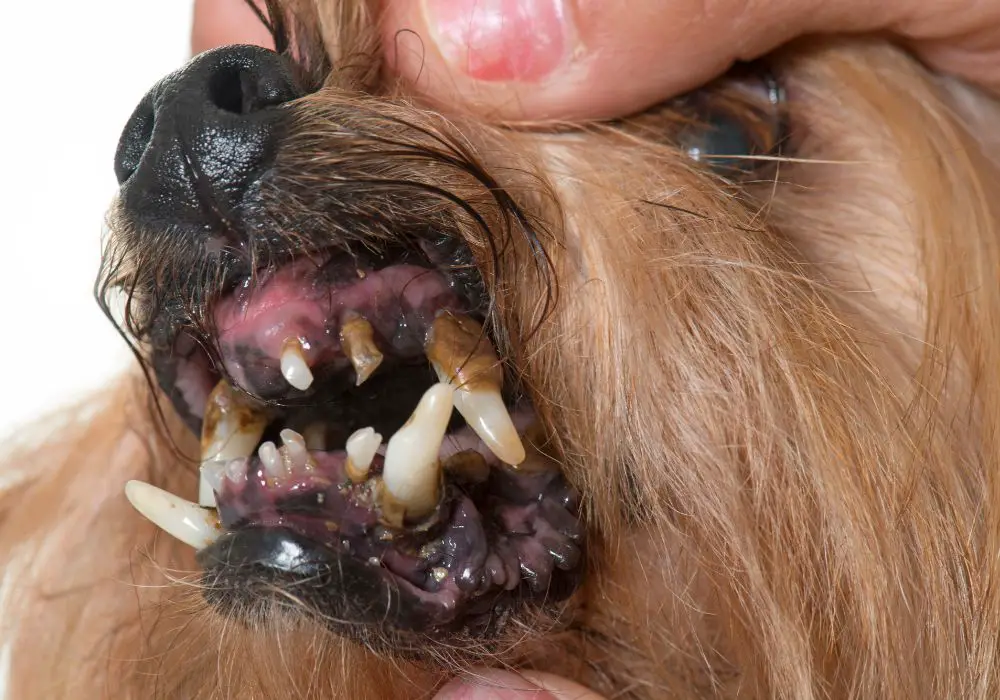
Since teeth chattering can indicate serious medical conditions in elderly dogs, prompt veterinary attention is advised. Diagnostic steps may include:
Complete Veterinary Exam
A full physical exam helps detect oral tumors, dental disease, kidney/liver problems, and neurological abnormalities. Your vet will assess all body systems in detail.
Bloodwork Analysis
A complete blood count (CBC) and blood chemistry panel can screen for infection, inflammation, organ dysfunction, endocrine disorders, cancer, and other systemic diseases.
Urinalysis
Urinalysis is done to assess kidney function and check for urinary tract conditions like infections, stones, tumors, and bladder disease. These become more common in senior dogs.
Oral Examination
Your vet will perform a thorough oral exam, looking closely at the teeth, gums, cheeks, lips, tongue, palate, and throat for any abnormalities. Dental probing assesses gum health and tooth stability. This helps identify dental disease, masses, ulcers, etc.
Dental Radiography
Full mouth dental x-rays are often needed to evaluate below the gumline for problems like tooth root abscesses, bone loss from periodontal disease, and growths between the teeth. Radiographs provide visualization of the whole mouth.
Biopsy Analysis
If any oral masses, abnormal tissues, or suspicious lesions are found in the mouth, your vet will likely recommend a biopsy. Microscopic analysis of the cells determines if oral cancer is present and guides treatment.
MRI or CT Imaging
Advanced 3D imaging of the brain and surrounding structures helps diagnose neurological conditions like brain tumors, infarction, and trigeminal nerve damage. MRI provides the clearest views of soft brain tissue.
Referral to Specialist
For complex cases, your vet may recommend referral to a veterinary dentist, surgeon, neurologist, or oncologist for advanced diagnostics, treatment, and supportive care. Their expertise aids management of serious illnesses.
Treating the Underlying Condition

The treatment plan depends on the specific cause of teeth chattering, but may include:
- Professional dental cleaning, extractions, antibiotics, pain medication for severe dental disease
- Surgery, chemotherapy, radiation for oral cancer
- Seizure medications for epilepsy
- Surgery, radiation, chemo for brain tumors
- Blood pressure control, clot-busting drugs, supportive care for stroke
- Pain relief, steroids for trigeminal nerve disorders
- IV fluids, diet changes, medications for kidney/liver failure
- Behavior modification, anxiety medications, pheromone therapy for stress
Prompt veterinary attention and appropriate treatment is important for managing systemic diseases and improving quality of life. Addressing any pain, infection, or imbalance in the body can help resolve involuntary teeth chattering.
Prevention and Home Dental Care
To help prevent dental chattering and promote oral health:
- Brush your dog’s teeth daily using a pet-safe toothpaste
- Offer dental chews and kibble to help remove plaque
- Have regular professional cleanings under anesthesia as needed
- Give annual oral exams by your vet
- Address any stress triggers and anxiety in your senior dog
- Follow your vet’s advice for keeping up with preventive care
Stay attentive to changes in your elderly dog’s health. Schedule wellness checks at least every six months. Seek prompt veterinary help if chattering teeth or other concerning symptoms develop. Keeping your dog comfortable improves their golden years.
Frequently Asked Questions
What does it usually mean when an old dog’s teeth chatter?
Teeth chattering in senior dogs typically signals dental disease, oral tumors, neurological issues, or a painful medical condition. It should not be ignored, as it often indicates a serious underlying problem requiring veterinary attention.
Is teeth chattering in elderly dogs an emergency?
Urgent veterinary care is advised if the chattering starts suddenly, is combined with symptoms like bleeding gums or inability to eat, or is suspected to be seizure-related. These signs can indicate an emergency like infection, cancer, or neurological crisis. Otherwise, prompt but non-emergency exams are warranted.
What home remedies soothe chattering teeth in old dogs?
There are no home remedies to resolve involuntary dental chattering. Veterinary treatment of the underlying cause is needed. You can provide comfort at home with soft foods, oral pain relief medication if prescribed, and calming environments to reduce stress. Gently rubbing the jaw muscles may temporarily help.
Can my old dog’s chattering teeth be fixed?
Once properly diagnosed, many causes of teeth chattering can be treated and reversed, curbing the involuntary motions. With appropriate dental, neurological, or systemic treatment, your dog should show great improvement in their quality of life and comfort. Their chattering can resolve over time.
How can I prevent chattering teeth as my dog ages?
Daily dental care, oral health monitoring, reducing anxiety, keeping up with your vet visits, and promptly addressing any emerging health issues in your senior dog can help prevent problematic teeth chattering. Be proactive about managing your dog’s wellbeing as they get older.

